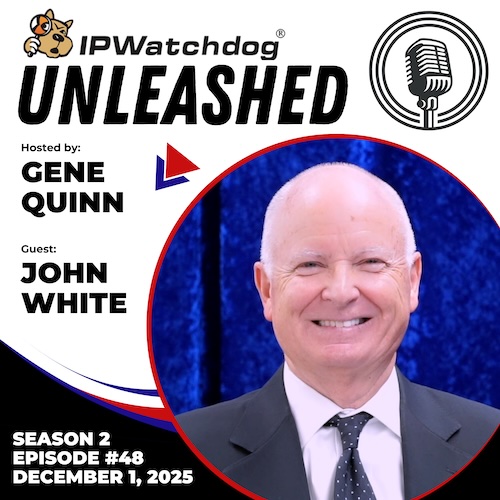Posts in District Courts
The U.S. Court of Appeals for the Federal Circuit (CAFC) issued a precedential, per curiam order on Thursday denying a mandamus petition brought by SAP America Inc. and SAP SE that sought to compel the district court to transfer its case from the Marshall division of the Eastern District of Texas to Sherman. However, the order spent a considerable amount of time detailing the district court’s errors.
The U.S. Court of Appeals for the Federal Circuit (CAFC) on April 2 reversed a district court’s claim construction in a patent infringement battle between Express Mobile, Inc. and GoDaddy.com, LLC, breathing new life into Express Mobile’s allegations that GoDaddy infringed website development patents. Specifically, the CAFC concluded that the district court improperly narrowed the term “runtime engine” in Express Mobile’s ’397 patent family by requiring it to directly read information from a database, rather than simply use or employ such information.
It’s no secret that the patent eligibility inquiry under Alice is infamous for its subjectivity and unpredictability, which is what happens when courts refuse to provide clarity and instead embrace a vague and indefinite standard that can mean different things to different people. Indeed in Interval Licensing LLC v. AOL, Inc., 896 F.3d 1335, 1350 (Fed. Cir. 2018), Judge Plager’s dissent identified the absence of a definition as the root problem: “The phrase ‘abstract ideas’ is a definitional morass … There is no single, succinct, usable definition anywhere available.” And that allows judges on every level to do whatever they want without any structural tether to the law.
As we previously discussed, beginning in 2022, a series of patent infringement lawsuits were filed against Moderna and collaborators Pfizer+BioNTech seeking damages based on their respective sales of the Spikevax® and Comirnaty® COVID-19 vaccines. Key suits were filed by third party mRNA and lipid pioneers that, while not having any mRNA-based products on the market themselves, leveraged their patent portfolios claiming a share of the billions of dollars in sales the vaccines have generated. Direct competitors Moderna and Pfizer+BioNTech also clashed in patent litigation beginning in 2022, with cases initiated in the United States and later expanding abroad.
If you happened to see the new Netflix show “Running Point,” starring Kate Hudson, that was made possible by a last-minute decision of a California federal court on the eve of the show’s February 27 release. Pepperdine University, in an emergency motion filed one week before the show’s release, asked the court to block the release due to trademark violations occurring within the series. The court denied the motion, and the series is now the number one TV show on Netflix as of this writing. Although the emergency motion was denied, proceedings will continue, and it is yet to be seen whether Pepperdine may ultimately succeed on some or all of its claims against Netflix and Warner Bros.
The intersection of artificial intelligence (AI) technology and copyright law pits an irresistible force against an evolving and uncertain legal framework. The latest case making waves in this struggle is Concord Music Group, Inc. v. Anthropic PBC, in which Concord Music Group and other publishers alleged copyright infringement by the AI company Anthropic. One of the major issues in the case revolves around whether Anthropic’s AI models, specifically its large language models (LLMs), are generating infringing content because the results were derived from copyrighted works.
Former U.S. Patent and Trademark Office (USPTO) Director Kathi Vidal, now with Winston & Strawn, filed an amicus brief on Wednesday in an appeal to the U.S. Court of Appeals for the Federal Circuit (CAFC) of a district court decision upholding a jury verdict that Ollnova Technologies’ patent claims were not ineligible at step two of the Alice-Mayo patent eligibility framework.
The controversy surrounding AI and copyright extends beyond the courtroom to the art market, where AI-generated works are increasingly contested. The ruling in Thomson Reuters v. Ross Intelligence adds legal weight to concerns about AI’s impact on creative and commercial markets, including the sale of fine art through auction houses and galleries, and its potential to compete directly with copyright holders.
Yesterday, Circuit Judge Stephanos Bibas, sitting by designation in the District of Delaware, issued a ruling updating a previous summary judgment decision dismissing copyright infringement allegations made by Westlaw legal research service provider Thomson Reuters against a competing artificial intelligence (AI) search tool developed by Ross Intelligence. Among the top reconsiderations in Judge Bibas’ recent decision is his fair use analysis, which now recognizes the non-transformative nature of Ross’ use of copyrighted headnotes that summarize legal decisions.
The U.S. Court of Appeals for the Federal Circuit (CAFC) in a precedential decision today reversed the U.S. District Court for the District of Delaware’s dismissal of a patent owner’s infringement suit against Groupon, Inc. The opinion, authored by Judge Reyna, held that patentees are not collaterally estopped from asserting different claims of a patent that had other claims invalidated in inter partes review (IPR).
Twenty years ago, Congress began hearing that the patent system needed a faster, cheaper way than district court suits to assess the validity of issued patents. In line with this goal, Congress emphasized that the new procedure was to be “an alternative to expensive district court litigation.”
Yesterday, the U.S. Court of Appeals for the Federal Circuit issued a precedential ruling in Regeneron Pharmaceuticals, Inc. v. Mylan Pharmaceuticals Inc. affirming the Northern District of West Virginia’s entry of a preliminary injunction preventing the sale of a biosimilar product approved by the U.S. Food & Drug Administration (FDA) and sold by Korean drug developer Samsung Bioepis. Applying its reasoning from Acorda Therapeutics v. Mylan Pharmaceuticals (2016), the Federal Circuit upheld the district court’s finding that Samsung Bioepis’ application for biosimilar approval filed with the FDA provided sufficient minimum contacts with Northern West Virginia to support personal jurisdiction over the defendant.
In Novartis Pharms. Corp. v. Torrent Pharma Inc., the U. S. Court of Appeals for the Federal Circuit shut down efforts to market a generic version of the heart disease drug ENTRESTO which is sold under a patent which claims a “combination” of two drugs, valsartan and sacubitril. Because the proposed generic drug accused of infringement was a “complex” of bonded valsartan and sacubitril, the patentee Novartis needed to urge and had successfully urged that “combination” be construed to include both bonded complexes and non-bonded (i.e. separate) components. Absent such construction, the accused product would not have infringed.
On January 25, the U.S. Court of Appeals for the Federal Circuit (CAFC) issued a precedential decision in Steuben Foods, Inc. v. Shibuya Hoppman Corp., reversing-in-part the District of Delaware’s post-trial rulings of judgment as a matter of law (JMOL) of noninfringement in favor of Shibuya. The Federal Circuit reversed noninfringement findings made under the reverse doctrine of equivalents (RDOE), declining to declare the doctrine subsumed by the 1952 Patent Act, but finding that Steuben Foods raised “compelling” arguments on that point. The opinion was authored by Chief Judge Moore.
The Chief Judge of the U.S. Court of Appeals for the Federal Circuit (CAFC) told the Court of Appeals for the D.C. Circuit on Thursday that Judge Pauline Newman’s appeal of her effective removal from the CAFC should fail because her claims do not meet the “exceptional circumstances” warranted for transfer to another circuit and her constitutional challenges are precluded. Newman appealed the July 2024 dismissal of her case against the CAFC in early December, after the U.S. District Court for the District of Columbia in July dismissed the remaining counts in her challenge to CAFC Chief Judge Kimberly Moore’s inquiry into Newman’s fitness to continue serving as a federal appellate judge.

Latest IPW Posts
USPTO Reminds Examiners, Applicants to Consider and Use Eligibility Declarations Wisely
December 4, 2025 @ 05:05 pmNinth Circuit Affirms Trademark Injunction Against OpenAI Company in Dispute Over Similar Marks
December 4, 2025 @ 01:15 pmSCOTUS Delays Trump Bid to Oust Perlmutter Pending Arguments in Similar Cases
December 4, 2025 @ 08:15 amArnold & Porter is Seeking a Senior Manager of IP Administration
December 4, 2025 @ 05:15 am
Latest Podcasts

IPWatchdog Events
Webinar: Remedies for Standards Essential Patent Disputes in the US
December 11 @ 12:00 pm - 1:00 pm ESTIPWatchdog LIVE 2026 at the Renaissance Arlington Capital View
March 22, 2026 @ 1:00 pm - March 24, 2026 @ 7:00 pm EDT

![[IPWatchdog Logo]](https://ipwatchdog.com/wp-content/themes/IPWatchdog%20-%202023/assets/images/temp/logo-small@2x.png)
![[Advertisement]](https://ipwatchdog.com/wp-content/uploads/2025/12/Harfang-IP-Dec-11-2025-sidebar-700x500-1.jpg)
![[Advertisement]](https://ipwatchdog.com/wp-content/uploads/2025/11/Juristat-Ad-Firm-Cost-Management-Nov-18-Dec-31-2025-Animated-Varsity-Ad-final.gif)
![[Advertisement]](https://ipwatchdog.com/wp-content/uploads/2025/11/PTAB-Masters-2026-sidebar-early-bird-700x500-1.jpg)





![[Advertisement]](https://ipwatchdog.com/wp-content/uploads/2021/12/WEBINAR-336-x-280-px.png)
![[Advertisement]](https://ipwatchdog.com/wp-content/uploads/2021/12/Ad-4-The-Invent-Patent-System™.png)